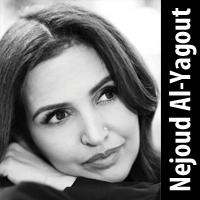
This week, Disney decided to pull Beauty and the Beast from theaters across Kuwait, because our local censors, ever-ready to step up to defending antiquated beliefs of separation, decided it was best to cut what they deemed was inappropriate for the masses. Additionally, just in case once was not enough, it was also announced that Tarweek fi Beirut, a movie directed by Kuwaiti filmmaker Farah Al-Hashim, was banned at our very first Film Festival here for trivial reasons: attire and dialogue that is offensive to what the censors perceive as an ultra-sensitive, ultra-conservative society - which is certainly not the case for every single member of our community. Interestingly enough, this movie was celebrated at film festivals in Italy, Australia and Egypt. What is more interesting about this is how the censors believe that their way of thinking should be implemented by everyone in society, regardless of others' beliefs. And one wonders how they get away with it, while many of us feel saddened by the fact that we are not permitted to enjoy art to its fullest degree in our country, especially at a time when the cultural scene is booming. It seems as though art, unless censored, is offensive to the fabric of conditioning, weaved by a patriarchy that seems to be holding on by a thread. I wonder how a concert, a nude sculpture, or a kissing scene can terrify a person? Most of us appreciate art for what it is. And it is poignantly beautiful to be able to express ourselves without worrying about others. How can we censor art? How? Though many people would argue that the majority of Kuwaitis agree with censorship, there are also many, many Kuwaitis who are opposed to censorship in any form. What happened to living in a society of live and let live? And though the censors use religion as justification, might one add that even the Koran stipulates: You have your religion, and I have mine.
Religion, or the lack of it, for that matter, is a personal journey. Whether or not one adheres is not up to a board of men. Women here understand that they cannot wear bikinis in public beaches or "provocative" clothing anywhere. Women and men know that they cannot drink in public. All are aware that public displays of affection are not permitted. There are many codes of behavior that - though not accepted by everyone - are silently implemented. But isn't it pushing a tad too far when art is involved in the equation? Not censoring something does not mean we agree with it. It means we are strong enough in our own convictions while respecting the fact that varied convictions hold true for others. Isn't it tragic when music concerts are considered corrupt, though music is an integral part of our ancestry? Isn't it tragic that someone else has to decide what is corrupt for all of us? We have our own moral compasses and they differ from others. And labels are flexible as well. Many religious people attend concerts here too, so censorship is only creating further divisiveness. The labels of liberals and conservatives are wearing thin. Today, many people are finding a balance between their beliefs and tastes. They fast and pray but blast their radios as well. They go on pilgrimage yet visit art museums abroad where they appreciate the beauty of paintings which would certainly be banned in this region.
We cannot create clones. Only egos create clones. Only egos spread tentacles across the internet, gauging which sites can be filtered to preserve a shaky foundation. Isn't it intriguing, though, that even with the constant monitoring of online browsing, certain countries in this area, according to statistics, are most prone to visit porn sites?
It reminds us of the Arabic saying: That which is prohibited is desired. So, both the eager censors and the not-so-eager censored ones are losing here. The former is actually causing the opposite desired effect, and the latter ends up more frustrated and unhappy. So maybe it is best to censor censorship! A win-win situation for all of us!
by Nejoud Al-Yagout
[email protected]



